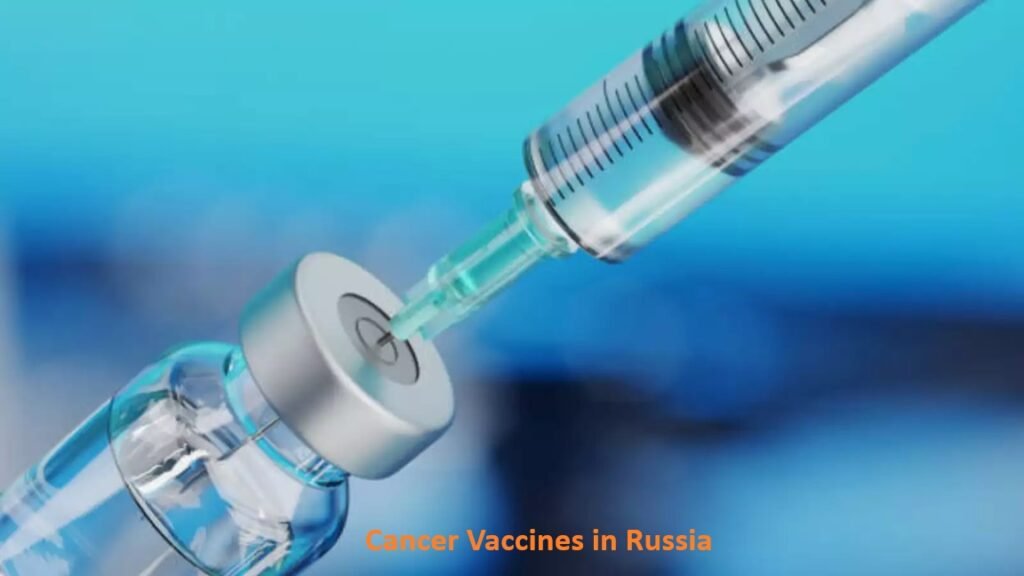Revolutionizing Oncology: Cancer Vaccines in Russia
In recent years, the global medical community has made significant strides in the fight against cancer. One of the most promising advancements in oncology is the development of cancer vaccines. Among the nations contributing to this transformative research, Russia has emerged as a significant player. This article delves into the science, progress, and potential of cancer vaccines in Russia shedding light on the groundbreaking efforts shaping the future of cancer treatment.
Understanding Cancer Vaccines
Cancer vaccines are a type of immunotherapy designed to stimulate the body’s immune system to target and destroy cancer cells. Unlike traditional vaccines, which prevent diseases, cancer vaccines typically focus on either:
- Preventive Vaccines: Aimed at preventing cancers caused by specific infections, such as the human papillomavirus (HPV) vaccine.
- Therapeutic Vaccines: Intended to treat existing cancers by boosting the immune response against cancer-specific antigens.
In Russia, researchers and healthcare professionals are actively exploring both preventive and therapeutic approaches, leveraging the nation’s robust scientific expertise.
The Landscape of Cancer Vaccines in Russia
Russia’s contributions to cancer vaccine development are rooted in its extensive history of immunological research. Key factors driving the country’s progress include:
- Strong Research Infrastructure: Russia boasts state-of-the-art laboratories and research institutions dedicated to oncology and immunology.
- Government Support: The Russian government has prioritized cancer research, allocating substantial funding for innovative projects.
- Global Collaborations: Russian scientists actively collaborate with international counterparts, exchanging knowledge and resources to accelerate advancements.
Key Players in Russian Cancer Vaccine Research
| Institution | Key Contribution | Notable Achievements |
|---|---|---|
| Gamaleya Research Institute | Vaccine development | Developed prototypes targeting solid tumors |
| Blokhin Cancer Research Center | Clinical trials | Advanced trials for therapeutic vaccines |
| Russian Academy of Sciences | Immunology research | Identified novel cancer antigens |

Breakthroughs in Russian Cancer Vaccine Development
1. Therapeutic Cancer Vaccines
Russian researchers are focusing on creating vaccines that harness the immune system to combat specific cancer types. For example:
- Peptide-Based Vaccines: These vaccines use short protein fragments to activate T-cells against tumor-specific antigens.
- DNA Vaccines: Leveraging genetic material to instruct immune cells to target cancer cells effectively.
2. Preventive Cancer Vaccines
Efforts in this area include developing vaccines to prevent virus-induced cancers, such as HPV-related cervical cancer and hepatitis B-linked liver cancer. Russia’s focus on vaccine accessibility ensures that these innovations benefit a wide population.
3. Personalized Vaccines
Personalized cancer vaccines, tailored to the genetic profile of an individual’s tumor, represent a cutting-edge approach. Russian scientists are employing advanced sequencing technologies to identify unique tumor markers.
Challenges in Cancer Vaccine Development
Despite the promising advancements, there are notable challenges:
- Complexity of Cancer Biology: The diversity of cancer types and their genetic mutations complicates vaccine design.
- Clinical Trial Barriers: Conducting large-scale trials to prove efficacy and safety requires significant resources and time.
- Regulatory Hurdles: Navigating regulatory frameworks to gain approval for new therapies can be time-consuming.
Russia is addressing these challenges through increased funding, international collaboration, and streamlined regulatory processes.

The Global Impact of Cancer Vaccines in Russia
Russian advancements in cancer vaccines have implications far beyond the country’s borders. By contributing to the global body of research, Russia plays a pivotal role in:
- Expanding Treatment Options: Offering new therapies for cancers resistant to conventional treatments.
- Reducing Global Cancer Burden: Preventive vaccines can significantly decrease cancer incidence rates worldwide.
- Fostering Innovation: Sharing knowledge with international communities accelerates overall progress in oncology.
Future Prospects
The future of cancer vaccines in Russia looks promising. Emerging technologies, such as artificial intelligence and machine learning, are poised to enhance vaccine development. Additionally, ongoing collaborations with global pharmaceutical companies will likely expedite the translation of research into accessible treatments.
Conclusion
The journey of cancer vaccines in Russia exemplifies the nation’s commitment to advancing medical science. With robust infrastructure, innovative research, and dedicated scientists, Russia is well-positioned to contribute significantly to the global fight against cancer. As we continue to explore the potential of cancer vaccines, the promise of a healthier future becomes increasingly tangible.
Disclaimer: This article is for informational purposes only and does not constitute medical advice. Consult a healthcare professional for personalized guidance regarding cancer treatment and prevention.

